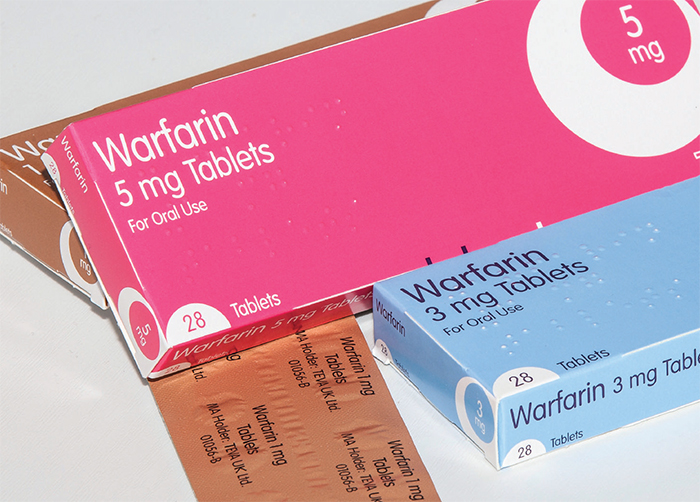Learning

UKCPA viewpoint: Miconazole and warfarin
In Learning
This is your ultimate guide to pharmacy learning. Here you can find modules, articles, scenarios and more to improve your knowledge and support your learning in the pharmacy.Bookmark
Record learning outcomes
Warnings about miconazole and warfarin prescribed together are still not being heeded.

The interaction between miconazole oral gel and warfarin is well documented, but patients continue to be put at significant risk. The following case is one that occurred recently in our local anticoagulation clinic.
Mr S had been on warfarin for stroke prevention due to AF for five years and was extremely well controlled with an INR target of 2-3. He attended a local GP out-of-hours service and was prescribed miconazole oral gel. He went to a different pharmacy to his usual one to get the medication dispensed, but made them aware he was on warfarin.
When he attended the warfarin clinic the following week, he was found to have an INR of 16 – dangerously high. He was initially given oral vitamin K to reverse the effects but developed haematuria, was admitted to hospital overnight, given more vitamin K and discharged the next day once the haematuria had settled. His INR took a few weeks to re-stabilise.
Well absorbed
Miconazole oral gel is extremely well absorbed from the buccal mucosa, leading to high levels systemically. Interactions have also been seen with the vaginal gel and topical miconazole creams.
Like most other azole antifungals (apart from fluconazole, which is a weaker inhibitor), miconazole is a potent enzyme inhibitor. It inhibits the metabolism of warfarin via the cytochrome P450 CYP2C9 pathway, causing high levels of warfarin and leading to a risk of bleeding.
In our area, the majority of patients we see who have received the combination have developed an INR >8, which brings a significant risk of bleeding and hospitalisation.
Weak warnings?
The severity of the warning on GP computer systems is cautionary as it is taken from the SPC and does not include warfarin as an absolute contraindication. The potential requirement for monitoring is suggested but this can cause prescribers to underestimate the severity of the interaction.
If a patient on warfarin is prescribed miconazole oral gel, the prescriber should be contacted to discuss alternatives. Nystatin is usually an appropriate option.
If patients have been prescribed the combination and no other options exist, they must let their warfarin clinic know and attend for monitoring within three days of starting miconazole. Even with this precaution, the INR can still increase excessively – so miconazole avoidance is the safest option.
As miconazole can also be bought OTC, all staff need to know not to sell it to patients on warfarin.
Prescribers underestimate the severity of the interaction
